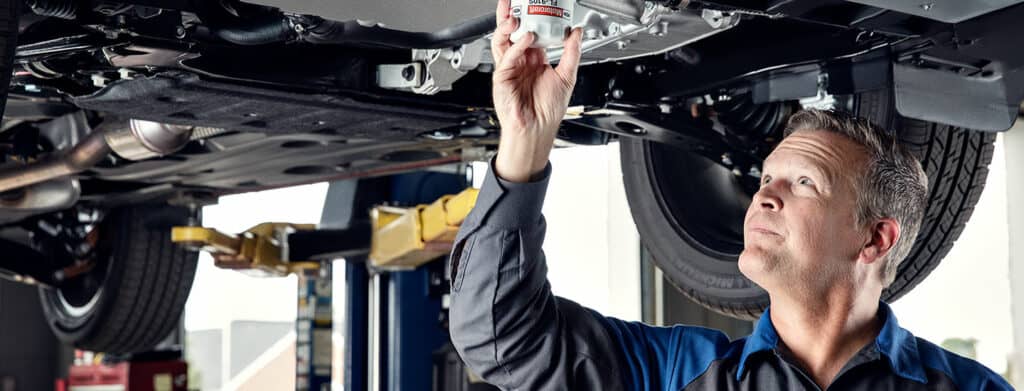Your car’s engine is a complex machine, and an oil change is one of the most important things that keep it running smoothly in Kelowna, BC, Canada. Oil is responsible for lubricating the engine’s internal parts, reducing friction, and removing heat from the engine. Over time, however, oil breaks down and becomes less effective, so regular changes in your oil are crucial for your car’s longevity. Neglecting your car’s oil can have serious consequences that go beyond just a maintenance issue. In this article, we’ll explore the consequences of neglecting your car’s oil change and why it’s more than just a routine maintenance task.
Gide from Oil Change to Auto Parts

What Happens When You Neglect an Oil Change?
The consequences of neglecting your car’s oil can be severe and costly. As oil ages, it loses its ability to lubricate the engine’s internal parts, which can cause increased friction and heat, which can lead to a variety of problems, including:
- Overheating: When oil is old and dirty, it cannot effectively remove heat from the engine, causing it to overheat, which can seriously damage your engine’s internal components.
- Engine Damage: As mentioned earlier, oil is responsible for lubricating your engine’s internal parts. When oil is old and dirty, it cannot effectively lubricate these parts, which can cause increased friction and wear and tear, leading to serious engine damage, including worn bearings, piston rings, and even a cracked engine block.
- Reduced Fuel Economy: When your engine is not running efficiently, it can lead to reduced fuel economy, which means you’ll be spending more money on gas than you need to, which can add up over time.
- Complete Engine Failure: Neglecting your car’s oil too long can lead to total engine failure. Engine failure can occur because old, dirty oil can cause severe damage to your engine’s internal components, which can be costly to repair.
Signs That Your Car Needs an Oil Change
Knowing the signs that your car may need an oil change is essential. Some of the most common signs include:
- The Oil is Dark and Dirty: If you check your oil and it’s dark and dirty, it’s a sign that it’s time to change the oil. Fresh oil is light in colour and transparent.
- Engine Noise: If you hear strange noises from your engine, it could be a sign that it is not properly lubricated, which could be due to old, dirty oil.
- Warning Light: Most cars have a warning light that comes on when your oil is low or needs to be changed. If you see this light, changing your oil as soon as possible is vital.
- Reduced Performance: If your car is not performing as well as it used to, it could be a sign that it needs the oil changed. Poor performance could include reduced acceleration, rough idling, or stalling on the roads of Kelowna, BC, Canada.
The Science Behind Oil Changes
Oil changes may seem mundane, but there’s a lot of science behind them. Oil is responsible for lubricating your engine’s internal components, reducing friction, and removing heat. Over time, however, oil breaks down and becomes less effective due to a variety of factors, including:
- Heat: Your engine generates a lot of heat, which can cause oil to break down over time.
- Contaminants: Dirt, dust, and other contaminants can get into your engine and mix with the oil, reducing its effectiveness.
- Moisture: Moisture can get into your engine and mix with the oil, which can cause it to break down more quickly.
- Time: Even if you don’t drive your car often, oil can still break down over time due to exposure to oxygen and other factors.
The Role of Oil in Your Car’s Engine
Oil plays a crucial role in your car’s engine. It lubricates the engine’s internal components, reduces friction, and removes heat. Without oil, your engine would quickly overheat and suffer serious damage. In addition to lubricating your engine, oil also helps to:
- Clean the Engine: Oil contains detergents that help to clean your engine by removing dirt, dust, and other contaminants.
- Protect Against Corrosion: Oil contains additives that help to protect your engine against corrosion.
- Improve Fuel Economy: Fresh oil can help to improve your car’s fuel economy by reducing friction and improving engine efficiency.
Conclusion – The Importance of Regular Oil Changes for Your Car’s Longevity
Regular oil changes are crucial for your car’s longevity. Neglecting your car’s oil can lead to serious consequences, including engine damage, reduced fuel economy, and even complete engine failure. By regularly changing your oil in Kelowna, BC, Canada, you can ensure your engine is properly lubricated, reducing friction and heat and preventing costly repairs. So, the next time you’re due for an oil change, don’t put it off – your car (and your wallet) will thank you.






